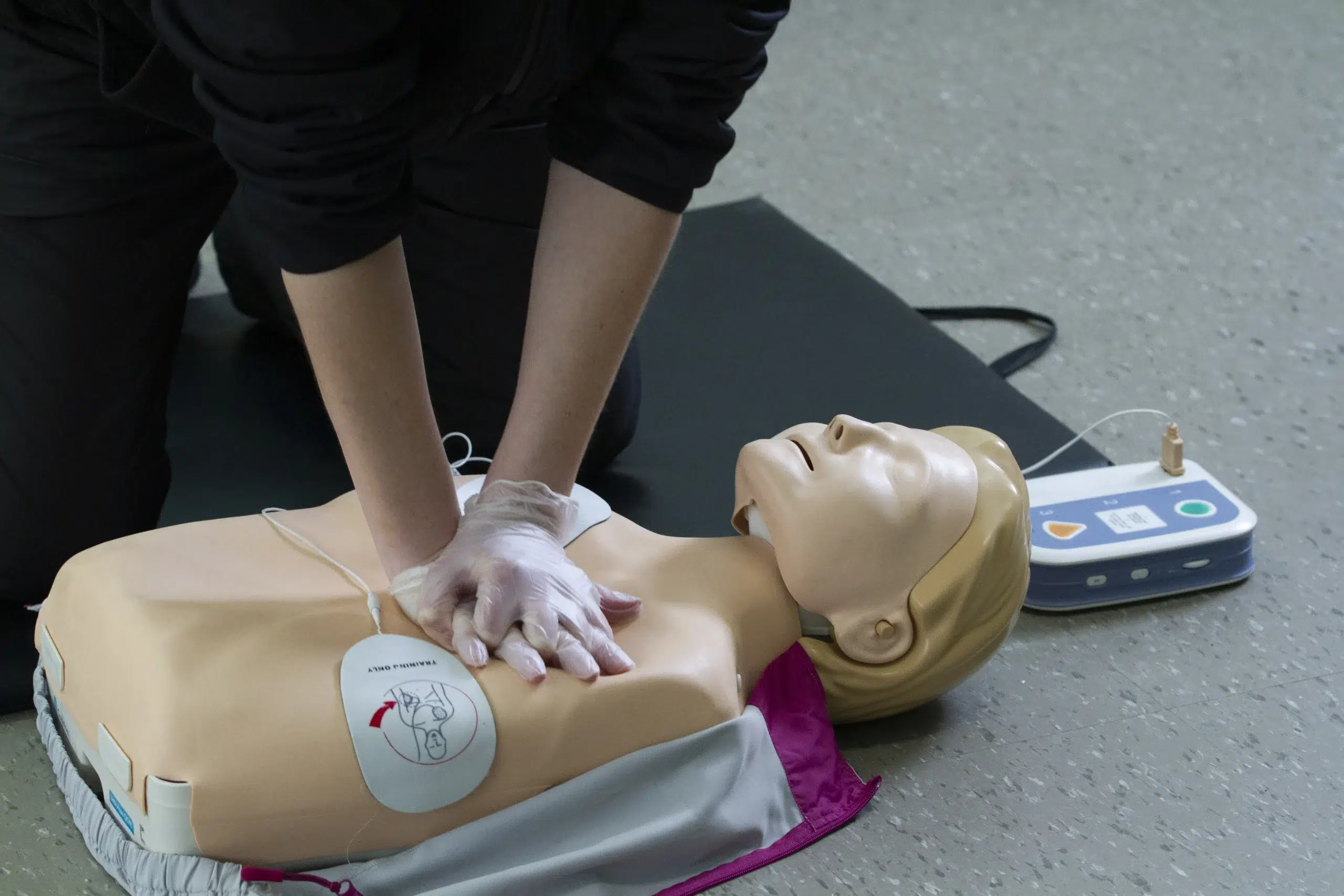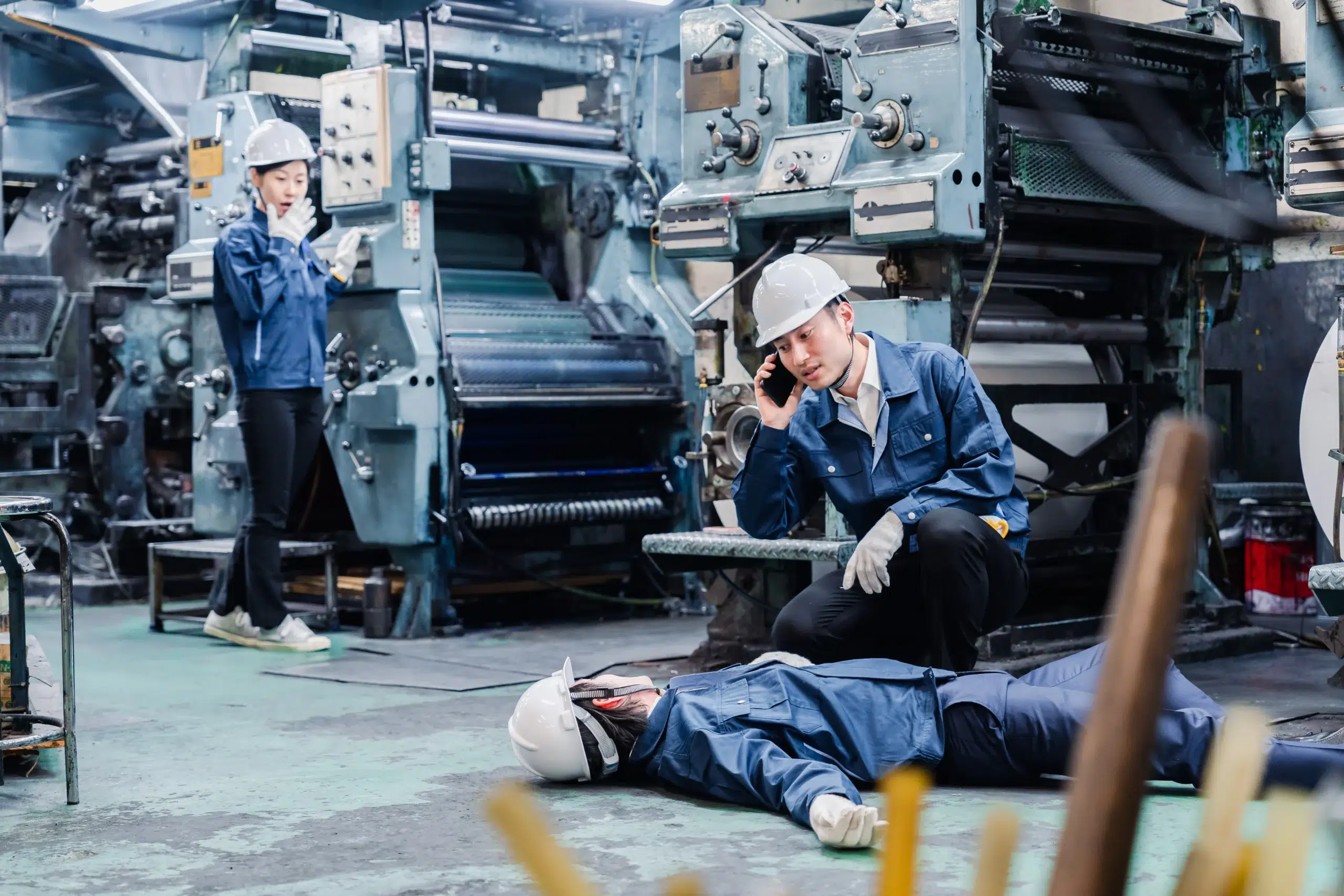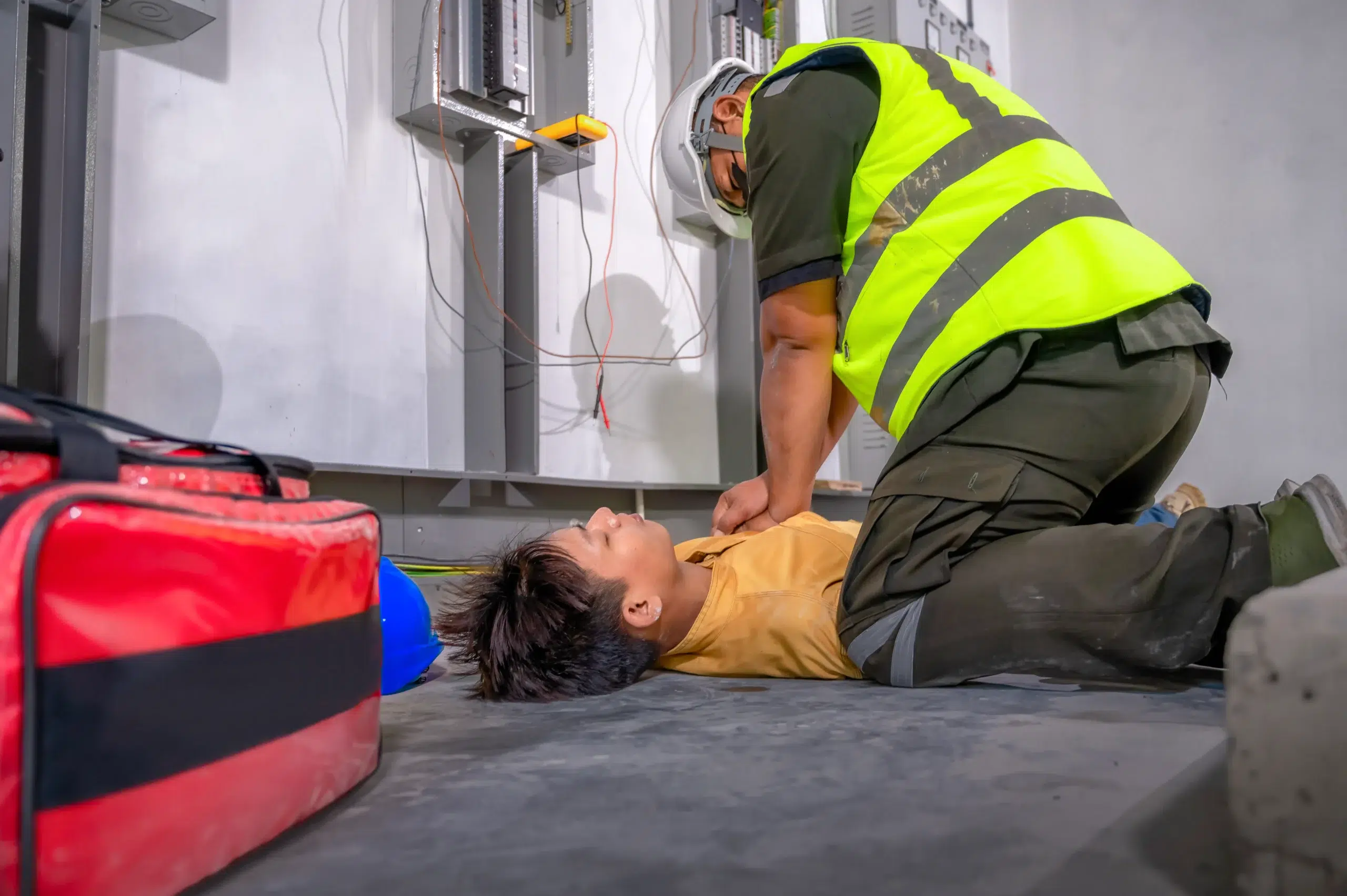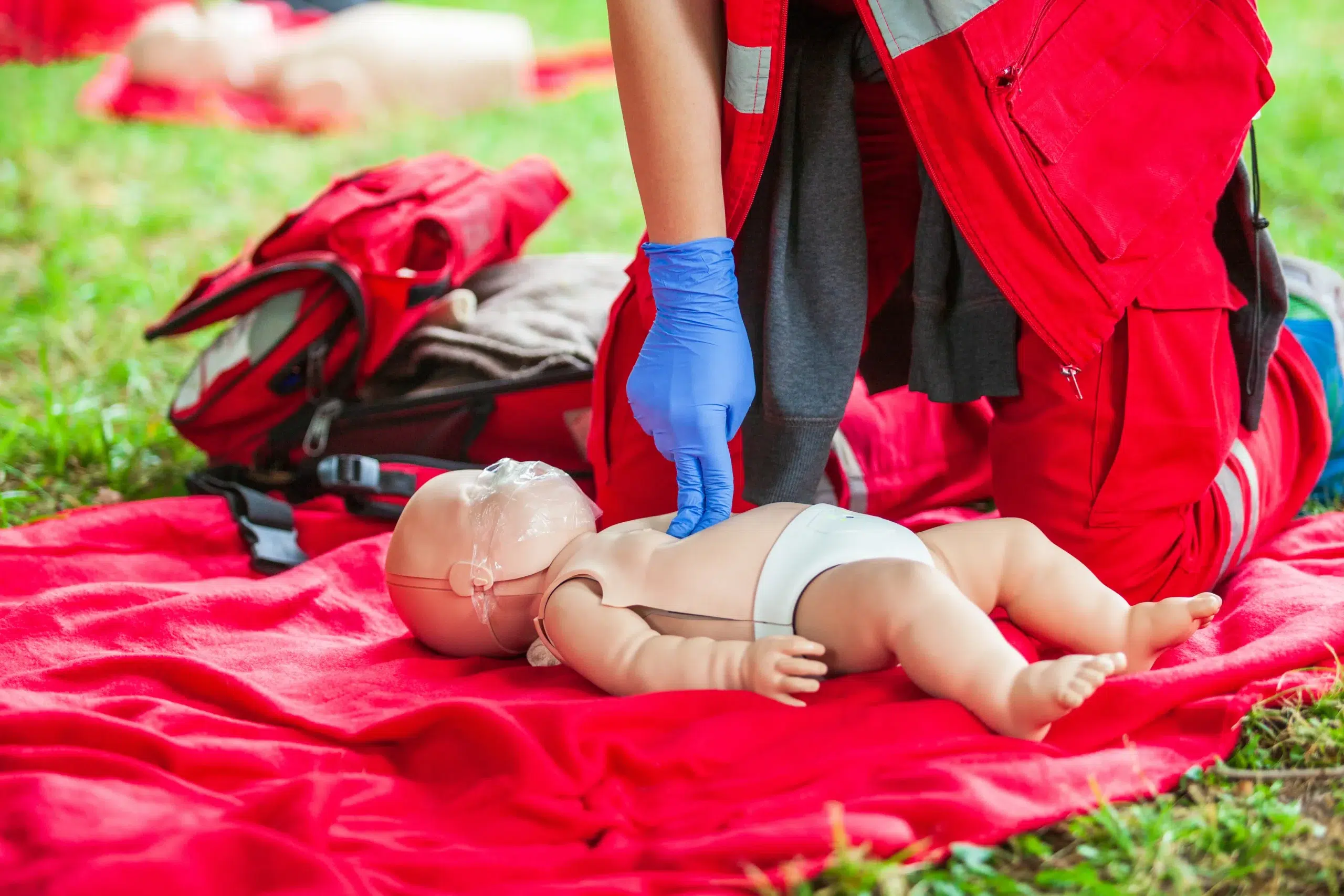Working in healthcare in San Ramon often means balancing patient care with ongoing training requirements. Finding time for essential certifications like CPR can be a challenge. Traditional CPR courses often require lengthy classes and inflexible schedules. Resuscitation Quality Improvement (RQI) offers a solution. RQI in San Ramon provides a modern, blended learning approach that combines online modules with short, hands-on skills sessions. This flexible format allows you to learn at your own pace and maintain your CPR skills without sacrificing valuable time. This article will guide you through everything you need to know about RQI, from its benefits to how to get certified in San Ramon.
Key Takeaways
- RQI provides a flexible and convenient way to stay current on your CPR skills: The blended learning format, combining online modules and short, in-person sessions, makes it much easier to fit training into a busy schedule.
- Regular practice and personalized feedback are key components of RQI: This approach ensures you retain essential skills and builds confidence in your ability to perform high-quality CPR.
- Danville CPR Classes offers accessible and affordable RQI training in San Ramon, Dublin, and Danville: Their commitment to student success and low-price guarantee makes them a great choice for individuals and groups seeking RQI certification.
What is RQI? How is it Different from Traditional CPR?
What is RQI?
Resuscitation Quality Improvement (RQI) represents a fresh approach to CPR training, especially designed for healthcare providers. Unlike traditional CPR courses, RQI blends online learning with short, in-person skills sessions. This innovative approach offers a flexible and convenient path to CPR certification, making it much easier to fit into busy schedules. If you’re in the Tri-Valley area—Danville, Dublin, or San Ramon—RQI offers a practical way to stay up-to-date on your life-saving skills. For more information on all our CPR courses, visit our CPR and First Aid Certification page.
Key RQI Training Features
RQI’s flexible, blended learning format combines online coursework with brief, in-person skills assessments. This allows healthcare professionals to learn at their own pace and complete the online modules whenever it’s convenient. The in-person sessions focus on hands-on practice and provide immediate feedback, ensuring that everyone maintains their skills. These RQI classes are designed to fit seamlessly into busy schedules, making it easier to balance training with work and other commitments.
RQI vs. Traditional CPR
Traditional CPR courses typically involve longer, less frequent training sessions. While these courses provide a solid foundation, they can be challenging to schedule and may not offer the same level of ongoing practice. RQI, on the other hand, emphasizes shorter, more frequent practice sessions. This approach has been shown to improve long-term skill retention and build confidence in performing CPR in real-life emergencies. If you’re looking for a more practical and effective way to maintain your CPR skills, RQI may be the better fit. Check out our low price guarantee to see how affordable our RQI training can be.
RQI Benefits in San Ramon
RQI offers several advantages for healthcare professionals in San Ramon and the surrounding areas. Let’s explore some key benefits:
Convenient and Flexible Options
RQI training blends online learning with in-person skills assessments. This hybrid approach offers flexibility, allowing you to complete the online portions at your own pace and schedule the in-person sessions when it’s most convenient. This blended learning makes it much easier to fit CPR training into your busy schedule, especially if you’re balancing work, family, or other commitments. No more rigid class times or having to take an entire day off for training.
Immediate Certification
You receive your RQI certification immediately upon successful completion of both the online modules and the in-person skills assessment. This means no waiting period for your card to arrive in the mail. You’ll leave the skills session with your certification, ready to provide high-quality patient care. This streamlined process ensures you’re always prepared and compliant with the latest CPR guidelines.
Improved Skills with Advanced Technology
RQI classes incorporate advanced technology to enhance the learning experience. Realistic simulations and real-time feedback during the hands-on practice sessions help you develop muscle memory and refine your technique. The interactive nature of the training keeps you engaged and promotes better skill retention. The use of technology like voice-assisted manikins provides a more dynamic and effective way to learn CPR.
Continuous Learning
Unlike traditional CPR classes that often involve lengthy sessions followed by long periods without practice, RQI emphasizes continuous learning. Short, regular refresher courses throughout the year help you maintain your skills and stay up-to-date with the latest CPR guidelines. This ongoing reinforcement combats skill decay and ensures you’re always ready to respond confidently in an emergency. RQI’s focus on continuous assessment and improvement helps healthcare professionals deliver the highest quality of patient care.
Find RQI Classes in San Ramon
If you’re searching for RQI certification in San Ramon, you have several convenient options. This area offers various providers and schedules to fit your needs.
Danville CPR Classes
Danville CPR Classes offers high-quality, affordable RQI courses in a convenient location easily accessible to those living in San Ramon, Dublin, and Danville, CA. They are known for their experienced instructors, commitment to student success, and low-price guarantee. For more information about their RQI program, visit the Danville CPR Classes website.
Other Local Providers
Beyond Danville CPR Classes, other training centers in the surrounding areas also offer RQI courses. Dublin CPR Classes, for instance, serves the Dublin, Livermore, and San Ramon communities. Expanding your search to nearby cities like Pleasanton and Livermore might reveal additional options. A quick online search for “RQI classes near me” can also help you discover more local providers.
Class Schedules and Availability
RQI’s blended learning format makes it easier to fit CPR training into your busy schedule. The program combines online coursework with short, in-person skills sessions. This flexible approach allows you to complete the online portion at your own pace and then choose a convenient time for your hands-on practice. Many providers offer various class times, including evenings and weekends, to accommodate different work schedules. Contact your chosen provider directly to find the schedule that works best for you.
The RQI Training Process
RQI CPR training blends online learning with in-person skills sessions. This blended learning approach offers flexibility and convenience, especially for busy professionals. Let’s break down the steps involved in RQI certification.
Initial Assessment
Your RQI journey begins with an online self-assessment. This initial evaluation gauges your current CPR knowledge and identifies areas for improvement. It sets the stage for personalized learning, ensuring the program focuses on your specific needs. You can learn more about the process on our RQI classes page.
Hands-on Practice
After completing the online modules, you’ll participate in short, frequent hands-on practice sessions. These sessions provide opportunities to apply your knowledge using realistic simulations and voice-assisted manikins. This practical training reinforces crucial skills and builds confidence in your ability to perform CPR effectively. For more details, check out our blog post on RQI training in San Ramon.
Real-Time Feedback and Tracking
One of the key advantages of RQI is the real-time feedback you receive during practice. The advanced technology used in RQI training provides immediate feedback on your compressions, ventilations, and overall performance. This allows you to identify areas for improvement and refine your technique under the guidance of certified instructors. Your progress is also tracked throughout the program, providing a clear picture of your skill development. You can find more information on RQI and CPR mastery.
Final Evaluation and Certification
Once you’ve completed the online modules and hands-on practice sessions, you’ll undergo a final skills evaluation. This evaluation assesses your proficiency in performing high-quality CPR. Upon successful completion, you’ll receive your RQI certification, valid for two years. The flexible training format makes it easier to manage training alongside your other commitments. Learn more about RQI training and certification.
RQI Class Costs in San Ramon
RQI classes offer a flexible and cost-effective way to stay current on your CPR skills. But how much does RQI training actually cost in San Ramon? Let’s break down the pricing structure and explore available discounts.
Pricing
Danville CPR Classes offers high-quality, AHA-certified courses with a low price guarantee. We believe that price shouldn’t be a barrier to learning these essential, life-saving skills. Our pricing is competitive with other training centers in the area, and we encourage you to contact us for the most up-to-date information on RQI course fees. We’re committed to making RQI training accessible to everyone in our community.
Discounts and Group Rates
Looking to train a team or group of colleagues? Danville CPR Classes, along with our sister company, Dublin CPR Classes, frequently offers discounts for group bookings and corporate training programs. These group rates can make RQI training even more affordable, especially for organizations like healthcare facilities, schools, or businesses with multiple employees needing certification. Contact us to discuss your specific needs and learn more about potential cost savings.
RQI vs. Traditional CPR: Cost Comparison
While traditional CPR classes often involve a larger upfront time commitment and a single renewal date, RQI certification focuses on short, frequent skills sessions. This “little and often” approach can lead to significant cost savings over time. RQI eliminates the need for lengthy refresher courses and reduces the risk of skills fading. For more details on how RQI differs from traditional CPR training, take a look at our RQI training guide.
Who Should Take RQI Training?
RQI training offers a flexible and convenient path to CPR certification, making it ideal for various individuals. Whether you’re a healthcare professional, first responder, or simply seeking advanced CPR skills, RQI caters to different needs and schedules. Let’s explore who can benefit most from this innovative approach to CPR training.
Healthcare Professionals
For healthcare providers like nurses, doctors, and medical technicians, maintaining top-notch CPR skills is crucial. RQI’s blended learning format combines online learning with short, in-person skills sessions, making it easier to fit training around busy schedules. Frequent, short training sessions with realistic simulations and immediate feedback help healthcare professionals hone their life-saving skills. This data-driven, skills-focused approach, with its emphasis on quarterly refresher sessions, combats skill decay—a common challenge with traditional CPR training—and ensures you’re always prepared to deliver high-quality CPR. You can explore RQI training options on the Danville CPR Classes website.
First Responders
First responders, such as EMTs, paramedics, and firefighters, often have demanding schedules that make traditional CPR training difficult. RQI offers the flexibility needed to stay up-to-date with certifications. The blended learning format combines online modules with short, frequent practice sessions, accommodating busy schedules and reinforcing crucial skills. This ensures first responders are always prepared to deliver effective CPR in critical situations. For more information on RQI’s benefits for first responders, visit the RQI classes page.
Individuals Seeking Advanced CPR Skills
Even if you’re not a healthcare professional or first responder, RQI can still be a valuable asset. Perhaps you’re a childcare provider, teacher, coach, or simply someone who wants to be prepared for any emergency. RQI empowers you with advanced CPR skills and the confidence to act quickly and effectively. The program’s focus on regular practice and skill assessment ensures you retain the knowledge and techniques necessary to perform high-quality CPR. If you’re interested in learning more, contact us today.
RQI Technology
RQI technology enhances CPR training through innovative tools and techniques. Here’s a closer look at some key features:
Voice-Assisted Manikins
Traditional CPR training often involves practicing on basic manikins. RQI elevates the experience with voice-assisted manikins that provide real-time feedback on your compressions and ventilations. These advanced manikins guide you through the process, helping you achieve the correct depth, rate, and recoil. This immediate feedback is invaluable for developing muscle memory and confidence.
Performance Tracking Software
RQI training incorporates sophisticated performance tracking software to monitor your progress and pinpoint areas for improvement. This data-driven approach allows you to see your strengths and weaknesses. The software also helps instructors personalize their guidance, ensuring you get the most out of each training session. It’s a motivating way to track your improvement over time.
Mobile Learning Platforms
RQI offers the flexibility of online learning combined with short, in-person skills sessions. This blended learning approach makes it easier to fit CPR training into your busy schedule. You can complete online modules at your own pace and then attend a hands-on session to practice your skills and receive personalized feedback.
Maintain Your RQI Certification
RQI certification, unlike traditional CPR certification, isn’t a one-and-done deal. It’s designed for continuous improvement and skill maintenance through regular practice and assessments. This approach ensures you’re always ready to respond effectively in a real-life emergency. Let’s break down how you maintain your RQI certification.
Ongoing Skill Assessments
RQI uses ongoing skills assessments to help you stay sharp. These short, regular training sessions incorporate realistic simulations and provide immediate feedback. Think of them as mini-practice sessions that reinforce proper technique and address any areas needing improvement. This consistent practice, combined with real-time feedback, is key to mastering high-quality CPR skills and building confidence. You’ll find that these frequent, shorter sessions are more effective than cramming for a single, large test every couple of years.
Quarterly Practice
To further reinforce your skills and prevent skill decay, RQI emphasizes quarterly refresher sessions. These sessions help solidify your knowledge and maintain muscle memory. Traditional CPR training often struggles with skill decay because of infrequent practice. RQI addresses this directly with its quarterly structure, ensuring you stay proficient in life-saving techniques. This guide to RQI training offers a helpful overview of how these quarterly sessions fit into the overall program.
Annual Renewal
While you’ll engage in ongoing assessments and quarterly practice, your RQI certification requires an annual renewal. This renewal process typically involves demonstrating competency in the skills you’ve been practicing throughout the year. It’s a straightforward process designed to confirm your continued proficiency. The shorter, more frequent practice sessions throughout the year make this annual renewal less stressful and contribute to better long-term skill retention compared to traditional CPR training methods.
Common RQI Concerns
Considering RQI certification? You probably have some questions. It’s natural to wonder how effective online learning is, how much time you’ll need to commit, and how you’ll retain those all-important skills. Let’s address these common concerns head-on.
Online Learning Effectiveness
One of the biggest draws of RQI is the blended learning approach. It combines online learning with hands-on skills sessions. This allows for flexible learning, fitting into your busy schedule. You might be thinking, “But is online learning really effective for something as crucial as CPR?” The answer is yes. RQI’s online modules use interactive exercises, simulations, and knowledge checks to ensure you grasp the material thoroughly. It’s not just passive watching; you’re actively engaged in the learning process. This sets you up for success when you move on to the in-person skills assessment.
Time Commitment and Scheduling
We get it—you’re busy. Traditional CPR classes can take a big chunk out of your day. RQI understands this and offers a more manageable approach. The online portion lets you learn at your own pace, whenever and wherever it’s convenient. The in-person skills sessions are short and focused, designed to assess and refine your technique.
Skill Retention and Practice
With traditional CPR training, it’s easy for skills to fade over time. RQI addresses this with its emphasis on low-dose, high-frequency training. Short, regular practice sessions keep your skills fresh and your confidence high. You’ll also receive real-time feedback during practice, helping you identify areas for improvement. This consistent reinforcement is key to retaining crucial CPR knowledge and skills long-term. RQI’s emphasis on quarterly refresher sessions combats skill decay, a common challenge with traditional CPR training.
Get Started with RQI in San Ramon
So, you’re ready to begin your RQI journey? Great! This section covers everything you need to know to get started with RQI certification in San Ramon.
Register for Classes
RQI training blends online learning with in-person skills assessments. This allows you to learn at your own pace and still get the hands-on practice you need. Danville CPR Classes offers RQI classes designed to fit your busy schedule. Check our website for upcoming courses and register online.
What to Expect in Your First Session
RQI provides flexible CPR training that fits your schedule. The blended learning format combines online modules with short, in-person skills sessions, making it easier to manage training alongside work and other commitments. Your first session will primarily focus on a skills assessment to gauge your current CPR proficiency. You’ll work with our certified instructors who provide personalized feedback and guidance. Don’t worry if it’s been a while since your last CPR class—the goal is to refresh your skills and build a strong foundation.
RQI Training Success Tips
Want to make the most of your RQI training? Here are a few tips to help you succeed:
- Practice Regularly: Short, frequent practice sessions are key to mastering CPR skills. RQI’s structure makes this easy.
- Engage with the Material: Take your time with the online modules and contact us if you have questions.
- Embrace the Feedback: Use the feedback from your instructors to refine your technique and improve your performance. The instructors at Danville CPR Classes are here to support you.
- Stay Current: RQI emphasizes ongoing learning. Stay committed to the process to maintain your skills and provide the best possible care.
Related Articles
- RQI in San Ramon: Your Guide to CPR Training – Danville CPR Classes
- Why CPR is Vital in Healthcare and Public Safety
- CPR Certification Near Me: Your Complete Guide – Danville CPR Classes
- ACLS Courses in Dublin: A Complete Guide – Danville CPR Classes
- CPR Training in Dublin: A Complete Guide – Danville CPR Classes
Frequently Asked Questions
What exactly is RQI and why is it different from traditional CPR training? RQI, or Resuscitation Quality Improvement, is a more modern approach to CPR training specifically designed for healthcare professionals. It combines online learning with short, frequent in-person skills sessions, offering more flexibility and better skill retention than traditional CPR courses. It’s a convenient way to stay up-to-date on your CPR skills, especially for busy professionals.
How much does RQI training cost, and are there any discounts available? Danville CPR Classes offers competitive pricing on all its RQI courses, including a low-price guarantee. We also offer discounts for group bookings and corporate training programs, making it more affordable to train your entire team. Contact us directly for the most up-to-date pricing information.
I’m a healthcare provider in San Ramon. Why should I choose RQI over traditional CPR? RQI offers several advantages for healthcare professionals in San Ramon. The blended learning format allows for flexible scheduling, the immediate certification gets you back to work quickly, and the advanced technology used in RQI classes enhances the learning experience. Plus, the continuous learning aspect of RQI ensures your skills stay sharp.
What does the RQI training process involve, from start to finish? The RQI training process begins with an online self-assessment to gauge your current CPR knowledge. You’ll then complete online modules at your own pace, followed by short, hands-on practice sessions with real-time feedback. Finally, you’ll complete a skills evaluation to receive your RQI certification.
Who can benefit from RQI training? Is it only for healthcare professionals? While RQI is ideal for healthcare providers and first responders, anyone can benefit from this advanced CPR training. Whether you’re a childcare provider, teacher, coach, or simply someone who wants to be prepared for emergencies, RQI equips you with the skills and confidence to perform high-quality CPR.








